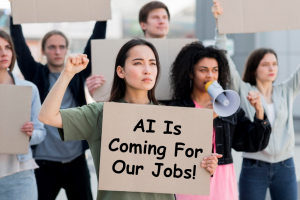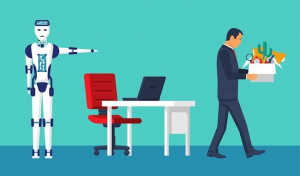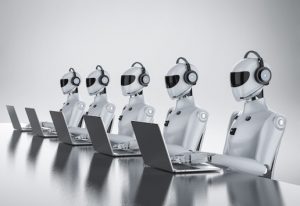As artificial intelligence (AI) continues to advance, the future of work is being reshaped. The fear of job loss due to AI automation is widespread, but a recent study highlights a concerning trend – AI is likely to replace more female employees than their male counterparts. The McKinsey Global Institute conducted a study titled ‘Generative AI and the Future of Work in America,’ which sheds light on the potential impact of AI automation on the US job market. This article delves into the study’s findings, revealing how AI could disproportionately affect women’s employment prospects and the measures needed to safeguard their futures.
Also Read: AI Surge: Stability AI CEO Predicts Job Losses for Indian Developers Within 2 Years

AI’s Impact on the US Job Market
The McKinsey report predicts that by 2030, AI-driven automation will lead to approximately 12 million occupational transitions in the US as AI replaces jobs involving data collection and repetitive tasks. This raises concerns about potential job losses and the need for workforce reskilling.
Also Read: OpenAI CEO Sam Altman: Jobs at Risk as AI Proves Its Might

Gender Disparity
A significant revelation from the study is that AI automation is expected to impact women’s employment more than men’s. Occupations traditionally dominated by women, such as office support, customer service, and food service, are more vulnerable to AI disruption. The report suggests that women are 1.5 times more likely than men to require transitioning into new occupations due to AI automation.
The Vulnerable Occupations
Customer service representatives and office support workers are highly susceptible to AI automation. The report found that 80 percent of US customer service representatives and 60 percent of office support workers are women. These occupations involve repetitive tasks and data processing, making them suitable for automation by AI systems.
Also Read: Rapid Rise of Artificial Intelligence Spells Job Losses: Thousands Affected in Tech Sector

The Wage Gap Concerns
The implications of AI automation on female workers are far-reaching. Women in lower-wage jobs, often the most vulnerable to AI disruption, are up to 14 times more likely to require occupation changes than those in higher-wage positions. This is particularly concerning as women already face a gender pay gap of approximately 22 percent.
Urgent Measures for Safeguarding Female Workers
The study calls for a shift in hiring practices, urging employers to prioritize skills and competencies over credentials. Recruiting from overlooked populations, such as rural workers and people with disabilities, can broaden the talent pool. Additionally, providing training that aligns with evolving needs is essential to prepare workers for the AI-driven future.
Also Read: ChatGPT Steals Copywriting and Skill Jobs: How to Stay Employed in the AI Future
Seizing Opportunities Amidst the AI Transition
McKinsey’s report on AI’s impact on the US job market points towards the inevitable change taking place in the workforce. While AI may threaten certain occupations, it also presents opportunities for job creation in new and emerging fields. Roles requiring complex problem-solving, critical thinking, creativity, and advanced technical skills will be in demand. Both female and male employees should focus on upskilling themselves to capitalize on these emerging opportunities.
Also Read: Jobs That AI Can’t Replace

Our Say
The rise of AI automation is a transformative force in the workforce, but it can potentially exacerbate gender disparities. The McKinsey report’s findings serve as a wake-up call, urging employers and policymakers to take proactive measures to safeguard female employees from the impacts of AI automation. By prioritizing skills-based hiring, investing in training, and fostering diversity and inclusion, we can create a future where AI benefits all, leveling the playing field for both men and women. The key lies in embracing AI’s potential and empowering workers to adapt and thrive in the changing work landscape.




